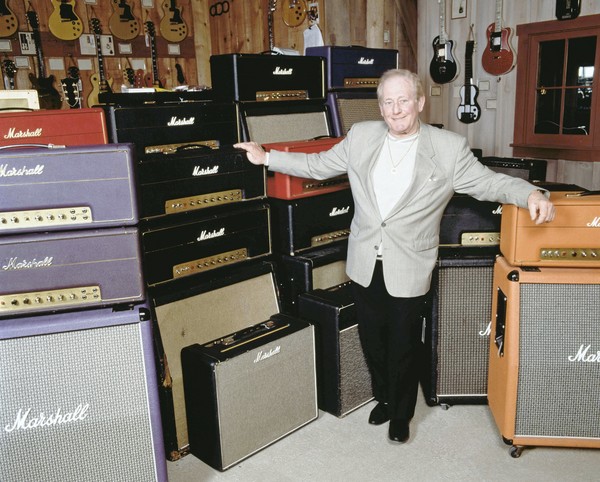
Yesterday, legendary amp maker and founder of Marshall Amplification Jim Marshall died at age 88.
It didn't take long for a tremendous outpouring of condolences, thanks and memories to emerge from all corners of the music community, all in celebration of a man who truly changed the face of rock and roll.
One of the litany of artists who swore by Marshall's amps, Slash, has released an official statement on the passing of the "Father of Loud." It reads:
"I consider myself very fortunate to have known the late Jim Marshall. He was such a fantastic individual.
"Not only did he create the loudest, most effective, brilliant-sounding Rock & Roll amplifier ever designed, but he was a caring, hardworking family man who remained true to his integrity to the very end. His work ethic was unequaled and his passion unrivaled.
"He took great care of me personally, as one of his loyal fans and Marshall Amp enthusiasts, ever since we first met in the early 90's.
"At that time, he did the unprecedented; he had the first-ever Artist Model Marshall series designed for me when my Marshall amps were destroyed in a Guns N Roses concert riot in St. Louis in 1991. We had been friends ever since.
Get The Pick Newsletter
All the latest guitar news, interviews, lessons, reviews, deals and more, direct to your inbox!
"Jim cared for all his customers like they were his family. He would do whatever it took to make sure an artist was completely satisfied and he made sure his staff did likewise. It was very important to him that Marshall quality and customer care was paramount.
"Jim's passing marks the end of a very loud and colorful era. From Pete Townshend to Kerry King, Marshall Amplifiers have been behind every great Rock & Roll guitarist since the beginning. Marshall Amplification is one of the most enduring, iconic brands of contemporary music history.
"This industry will likely never see the likes of Jim again. But his legacy will live on forever."
Josh Hart is a former web producer and staff writer for Guitar World and Guitar Aficionado magazines (2010–2012). He has since pursued writing fiction under various pseudonyms while exploring the technical underpinnings of journalism, now serving as a senior software engineer for The Seattle Times.










